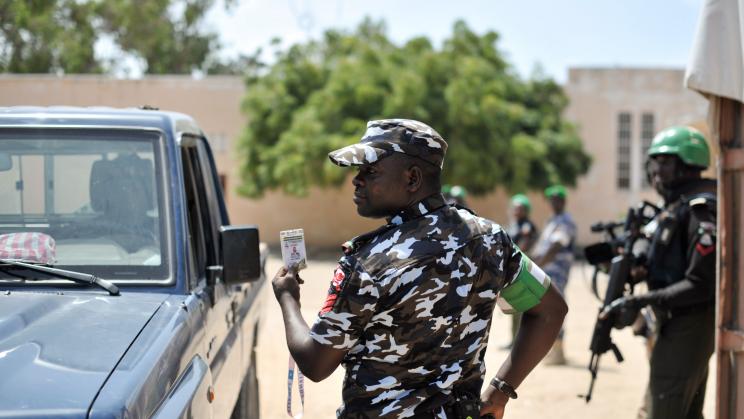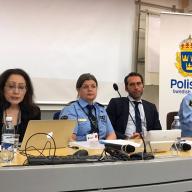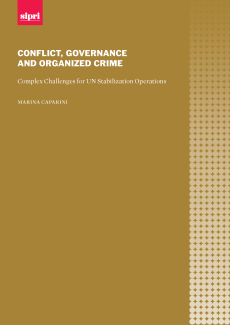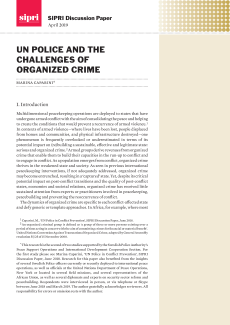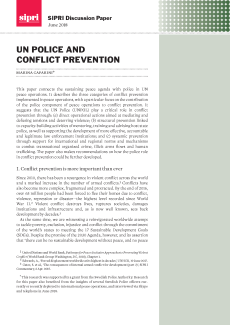Police in peace operations
The police component in multilateral peace operations has expanded significantly over the past 30 years. During the cold war, peacekeeping missions were primarily military in character and served as an impartial international force that monitored and supervised ceasefires before the negotiation of a peace settlement. In this context, relatively few international police functioned as monitors of host-state police in peacekeeping missions.
With the increase in the number of armed conflicts that followed the end of the cold war, the demand for peace operations grew. At the same time, mission mandates became more complex and multidimensional and their focus widened to include directly supporting the implementation of comprehensive peace agreements. The missions were tasked with helping to create a sustainable peace, through support to activities such as demining; disarmament, demobilization and reintegration of former combatants; security sector reform; electoral support; promotion of human rights and support to social and economic development. Other regional and subregional actors also became involved in peace operations, including the European Union (EU), Organization for Security and Co-operation in Europe (OSCE), North Atlantic Treaty Organization (NATO), African Union (AU), Economic Community of West African States (ECOWAS) and Southern African Development Community (SADC).
With these developments, the role of the police in building peace and preventing further conflict has become crucial. It is often the collapse of law and order within a state that fosters the intense instability and conflict that may eventually lead to efforts to create a peace agreement and the establishment of a peace operation. Conversely, the re-establishment of a functioning police and basic components of the criminal justice system are among the essential conditions that enable the draw-down and eventual withdrawal of a multidimensional peacekeeping mission.
Today there are over 11 000 police deployed in UN peacekeeping missions, with around 90 countries contributing police personnel. Police in contemporary peace operations are mandated with an array of critical tasks, including supporting the re-establishment of law and order; providing operational support to host-state police; protecting civilians and UN staff and facilities; and assisting with capacity-building, training and the reform and reconstruction of police and other law-enforcement institutions. In the exceptional circumstances of missions with executive mandates, UN police are directly responsible for upholding and enforcing the law while rebuilding the host-state’s police institutions.
SIPRI conducts applied research on various dimensions and dynamics of police in peace operations, including
- Understanding the role of police in re-establishing the rule of law, implementing SSR and community policing;
- Training and knowledge management of police components;
- Increasing female police participation, gender-sensitive police peacekeeping;
- Exploring the role of police in the prevention of violent extremism.
